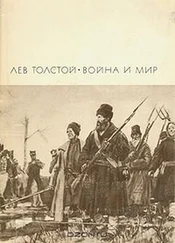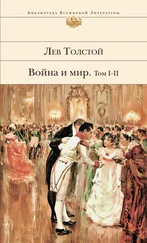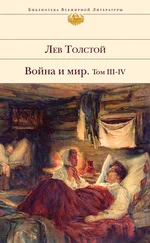| Bilibin liked conversation as he liked work, only when it could be made elegantly witty. |
Билибин любил разговор так же, как он любил работу, только тогда, когда разговор мог быть изящно-остроумен. |
| In society he always awaited an opportunity to say something striking and took part in a conversation only when that was possible. |
В обществе он постоянно выжидал случая сказать что-нибудь замечательное и вступал в разговор не иначе, как при этих условиях. |
| His conversation was always sprinkled with wittily original, finished phrases of general interest. |
Разговор Билибина постоянно пересыпался оригинально-остроумными, законченными фразами, имеющими общий интерес. |
| These sayings were prepared in the inner laboratory of his mind in a portable form as if intentionally, so that insignificant society people might carry them from drawing room to drawing room. |
Эти фразы изготовлялись во внутренней лаборатории Билибина, как будто нарочно, портативного свойства, для того, чтобы ничтожные светские люди удобно могли запоминать их и переносить из гостиных в гостиные. |
| And, in fact, Bilibin's witticisms were hawked about in the Viennese drawing rooms and often had an influence on matters considered important. |
И действительно, les mots de Bilibine se colportaient dans les salons de Vienne, [Отзывы Билибина расходились по венским гостиным] и часто имели влияние на так называемые важные дела. |
| His thin, worn, sallow face was covered with deep wrinkles, which always looked as clean and well washed as the tips of one's fingers after a Russian bath. |
Худое, истощенное, желтоватое лицо его было всё покрыто крупными морщинами, которые всегда казались так чистоплотно и старательно промыты, как кончики пальцев после бани. |
| The movement of these wrinkles formed the principal play of expression on his face. |
Движения этих морщин составляли главную игру его физиономии. |
| Now his forehead would pucker into deep folds and his eyebrows were lifted, then his eyebrows would descend and deep wrinkles would crease his cheeks. |
То у него морщился лоб широкими складками, брови поднимались кверху, то брови спускались книзу, и у щек образовывались крупные морщины. |
| His small, deep-set eyes always twinkled and looked out straight. |
Глубоко поставленные, небольшие глаза всегда смотрели прямо и весело. |
| "Well, now tell me about your exploits," said he. |
- Ну, теперь расскажите нам ваши подвиги, -сказал он. |
| Bolkonski, very modestly without once mentioning himself, described the engagement and his reception by the Minister of War. |
Болконский самым скромным образом, ни разу не упоминая о себе, рассказал дело и прием военного министра. |
| "They received me and my news as one receives a dog in a game of skittles," said he in conclusion. |
- Ils m'ont re?u avec ma nouvelle, comme un chien dans un jeu de quilles, [Они приняли меня с этою вестью, как принимают собаку, когда она мешает игре в кегли,] - заключил он. |
| Bilibin smiled and the wrinkles on his face disappeared. |
Билибин усмехнулся и распустил складки кожи. |
| "Cependant, mon cher," he remarked, examining his nails from a distance and puckering the skin above his left eye, "malgre la haute estime que je professe pour the Orthodox Russian army, j'avoue que votre victoire n'est pas des plus victorieuses." * * "But my dear fellow, with all my respect for the Orthodox Russian army, I must say that your victory was not particularly victorious." |
- Cependant, mon cher, - сказал он, рассматривая издалека свой ноготь и подбирая кожу над левым глазом, - malgr? la haute estime que je professe pour le православное российское воинство, j'avoue que votre victoire n'est pas des plus victorieuses. [Однако, мой милый, при всем моем уважении к православному российскому воинству, я полагаю, что победа ваша не из самых блестящих.] |
| He went on talking in this way in French, uttering only those words in Russian on which he wished to put a contemptuous emphasis. |
Он продолжал всё так же на французском языке, произнося по-русски только те слова, которые он презрительно хотел подчеркнуть. |
| "Come now! |
- Как же? |
| You with all your forces fall on the unfortunate Mortier and his one division, and even then Mortier slips through your fingers! |
Вы со всею массой своею обрушились на несчастного Мортье при одной дивизии, и этот Мортье уходит у вас между рук? |
| Where's the victory?" |
Где же победа? |
| "But seriously," said Prince Andrew, "we can at any rate say without boasting that it was a little better than at Ulm..." |
- Однако, серьезно говоря, - отвечал князь Андрей, - всё-таки мы можем сказать без хвастовства, что это немного получше Ульма... |
| "Why didn't you capture one, just one, marshal for us?" |
- Отчего вы не взяли нам одного, хоть одного маршала? |
| "Because not everything happens as one expects or with the smoothness of a parade. |
- Оттого, что не всё делается, как предполагается, и не так регулярно, как на параде. |
| We had expected, as I told you, to get at their rear by seven in the morning but had not reached it by five in the afternoon." |
Мы полагали, как я вам говорил, зайти в тыл к семи часам утра, а не пришли и к пяти вечера. |
| "And why didn't you do it at seven in the morning? |
- Отчего же вы не пришли к семи часам утра? |
| You ought to have been there at seven in the morning," returned Bilibin with a smile. "You ought to have been there at seven in the morning." |
Вам надо было притти в семь часов утра, -улыбаясь сказал Билибин, - надо было притти в семь часов утра. |
| "Why did you not succeed in impressing on Bonaparte by diplomatic methods that he had better leave Genoa alone?" retorted Prince Andrew in the same tone. |
- Отчего вы не внушили Бонапарту дипломатическим путем, что ему лучше оставить Геную? - тем же тоном сказал князь Андрей. |
| "I know," interrupted Bilibin, "you're thinking it's very easy to take marshals, sitting on a sofa by the fire! |
- Я знаю, - перебил Билибин, - вы думаете, что очень легко брать маршалов, сидя на диване перед камином. |
| That is true, but still why didn't you capture him? |
Это правда, а всё-таки, зачем вы его не взяли? |
| So don't be surprised if not only the Minister of War but also his Most August Majesty the Emperor and King Francis is not much delighted by your victory. Even I, a poor secretary of the Russian Embassy, do not feel any need in token of my joy to give my Franz a thaler, or let him go with his Liebchen to the Prater... True, we have no Prater here..." |
И не удивляйтесь, что не только военный министр, но и августейший император и король Франц не будут очень осчастливлены вашей победой; да и я, несчастный секретарь русского посольства, не чувствую никакой потребности в знак радости дать моему Францу талер и отпустить его с своей Liebchen [милой] на Пратер... Правда, здесь нет Пратера. |



